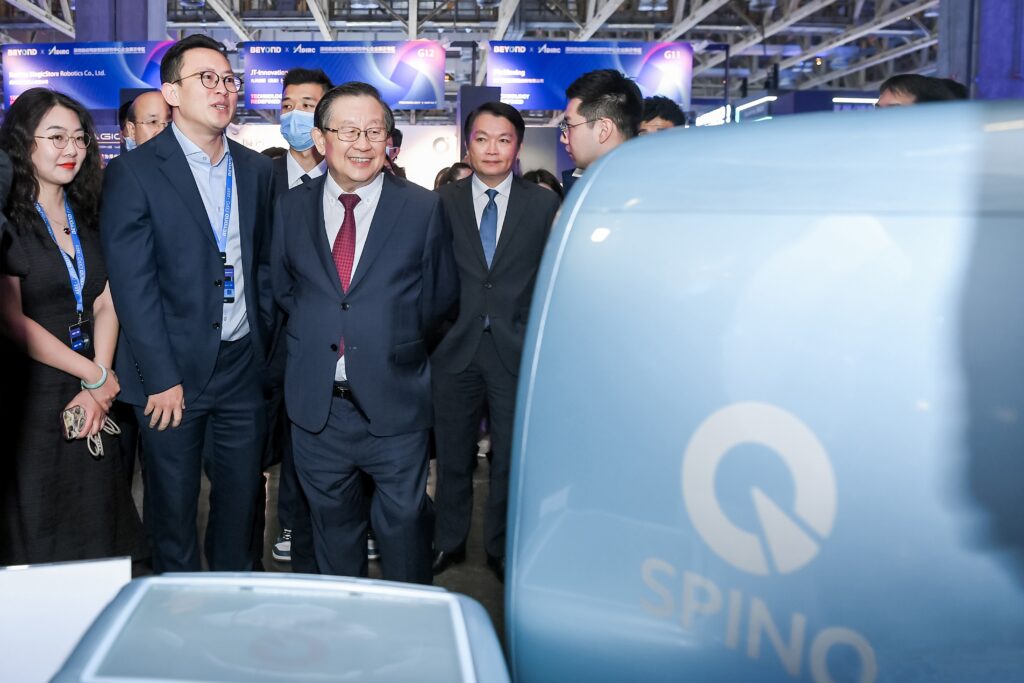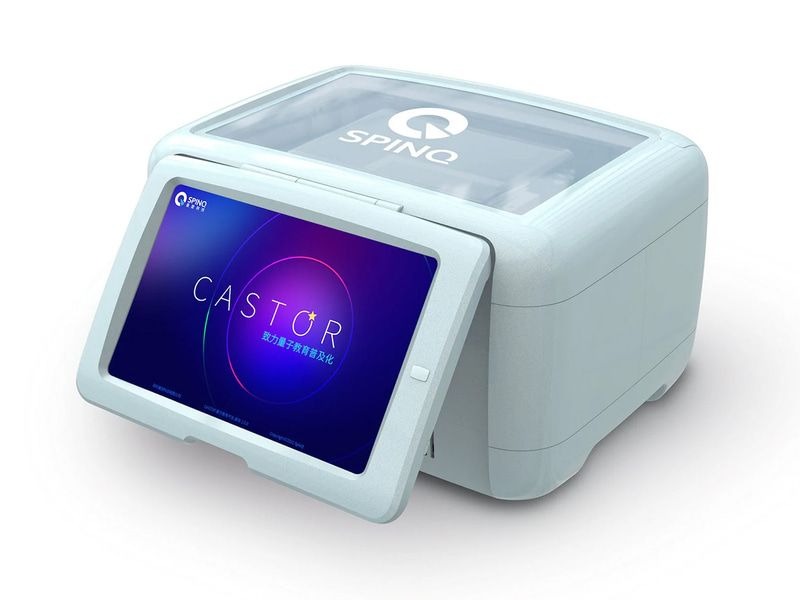I want to give you a little clue about this article: it's not about teleportation or time travel. Yet, in a strange way I could say that it touches on both themes, even if in a very light and collateral way. But first of all, a question: do we believe it or not? Do we believe or not that the world's first "portable" quantum computers have been presented? How is it possible?
A leap into the future
SpinQ Technology, a company specializing in quantum technology, has just unveiled the world's first portable quantum computers in Macau and released in Japan. Yes, we're talking about quantum computers that you can carry around like a regular laptop. After sporadic introductions and appearances over the past few years, these machines have been launched onto the market. Three models: Gemini Mini, Gemini e triangulum. The price? It starts at around 8500 euros for the basic model. But what can be done about it?
Small recap for quantum technology: quantum computers are computing devices based on the phenomenon of quantum mechanics. Unlike “normal” computers, quantum computers do not operate with bits, but with qubits (quantum bits). This makes them much more efficient and faster. Why? While a bit can take on a value of 0 or 1, a qubit can take on both 0 and 1 at the same time. Because of this, quantum computers have the ability to save a lot of time and perform calculations much faster than traditional computers.

SpinQ quantum computers, a few more details
The quantum systems of SpinQ are based on nuclear magnetic resonance (NMR), the technology used today in many applications, from chemistry to medicine. In systems the “working substance” used is the Dimethyl phosphite, a tetrahedral molecule composed of a phosphorus atom (P), a hydrogen atom (H), oxygen and two CH3O groups.
Il Gemini Mini, the cheapest of the three computers presented, is a 2-qubit system equipped with a touchscreen, which weighs about 14 kg. Not exactly a feather, but that's to be expected. It arrives equipped, the company says, with CASTOR software, which simulates 8-qubit operations.
The intermediate model, Gemini, costs around 40.000 euros, but as a layman (and without a detailed technical sheet, for the moment) I couldn't tell you how it differs. I mean: it's a 2-quibit system, like the other one. Like the other, it has software that simulates 8 qubit operations. In the end it is bigger, heavier and more expensive but (in theory) with the same power. Then explain this to me.
And the largest computer presented? I don't have the data on the price of the triangulum, but I can tell you that it is a 3-qubit system and another "supply" software, SpinQuasar.

Yes, but I repeat: what can we do about it?
This question puts enthusiasts and experts in crisis no less than it did at the dawn of the personal computer. Quantum computers promise to revolutionize a huge variety of fields, just as the advent of computing did. The ability to process information in ways currently impossible is an incredible plus. I'll tell you the first 5 applications that come to mind:
- Encryption and computer security: Quantum computers could enhance the security of communications (or threaten current cryptographic systems).
- Research of new drugs and materials: They could help simulate the behavior of molecules, accelerating the discovery of new medicines and materials.
- Optimization: They could provide faster and more efficient solutions to optimization problems in various fields.
- Machine Learning and Artificial Intelligence: They could improve data analysis and training of machine learning models, enhancing theAI.
- Climate modeling and weather forecasting: They could offer more accurate weather forecasts and climate models, including with the help of new weather satellites, helping to prevent natural disasters and understand climate change.
All that remains is to witness the predictable rush of these systems: we will soon remember these first SpinQ models as useless bricks, outclassed by increasingly practical and performing models.


